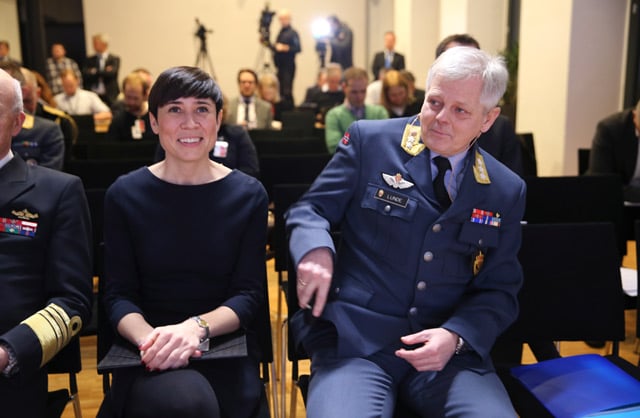“The threats in the digital world against political, military and economic targets are increasing. We expect extensive intelligence operations in the coming year,” the report states.
According to NIS, three main areas pose significant threats to Norway this year:
* Digital threats, particularly from Russia and China
* International terrorism
* Military buildup in Russia and increased geopolitical clashes between Russia and the West as a result of the annexation of the Crimean peninsula and the unrest in Ukraine
Active Russia
While the digital threat from China primarily revolves around industrial espionage, Russia takes a more active approach with a clear intent to influence public opinion and policies in the West, NIS head Lieutenant General Morten Haga Lunde stressed when presenting the report.
“For several years, Russia has infiltrated social networks to influence public opinion and used this as a base to spread disinformation and slander. Based on Russia's activity and capacity we believe that they possess information that they can use to influence the political processes and decisions of other countries,” he said.
An example of such activity came shortly after newspaper VG published its story on the NIS threat assessment Monday. In the article’s comments section, an obviously faked user profile accused the newspaper's of having an anti-Russian slant that tarnished its report. The comment was deleted.
Could affect elections
Russian hackers conducted a series of digital operations to influence the US election in November. The same could happen in Norway and several other countries in Europe that will hold elections this year, NIS warned.
It has already been reported that Russia hacked the Labour Party’s parliamentary group.
Defence Minister Ine Eriksen Søreide said that she fears Western elections will be impacted by Russian subversion.
“We have nothing concrete to suggest that there is a threat directed at the Norwegian elections, but we see what has developed over a very short time. It would be naive to believe that this couldn’t also affect the Norwegian election in different ways,” Søreide said.
Better Russian military technology
The report also points out that Russia, despite a struggling economy, is prioritizing the development of weapons technology and ensuring that its military power can be used in as many areas as possible.
Lunde insisted that “this affects Norway” but NIS does not currently see Russia a direct military threat.
“But there's a potential there that is tied to the rest of what we are seeing internationally,” the NIS head said.
Lunde also warned that Russian submarines are moving further west, and new technology makes them more difficult to detect.
“We are seeing an increase in Russian submarine activity and that the vessels are moving further west. Meanwhile their submarines have such well-developed technology that they are becoming increasingly difficult to detect,” he told broadcaster NRK.
Russia's upgraded and newly developed submarines can move almost noiselessly under water, according to NRK’s report. They also contain advanced missile systems and a water jet system which makes them very difficult to detect at low speeds.
“Russia has undergone a modernization in recent years. They have new submarines, surface ships, aircraft and weapons technology,” Lunde said.
Isis still a threat
The terror group Isis also poses a significant threat to European countries this year, despite being weakened in Iraq and Syria, NIS said. In contrast, the number of radical terrorist networks within Europe increased.
“We have no indication that Norway is a designated terrorist target. But Norwegian interests are still legitimate targets and threats can change rapidly,” Lunde said.
He also said that the lack of a digital border defense system could make Norway a “hub” for communication between the various terrorist networks. NIS is currently not allowed to monitor the data traffic into and out of Norway.
“It puts us in a very difficult situation and makes it difficult to keep track of what is going on,” Lunde said.


 Please whitelist us to continue reading.
Please whitelist us to continue reading.
Member comments